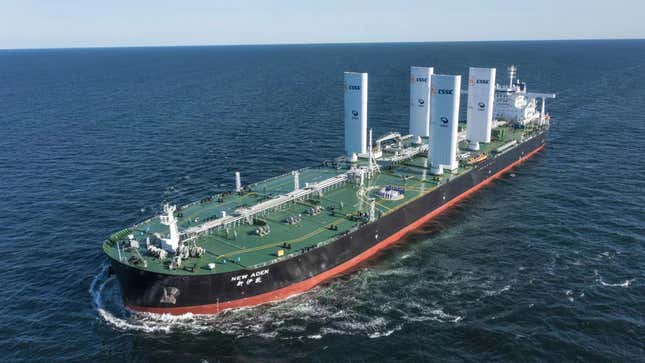
As heavy industries take action to reduce their carbon footprint, many companies are exploring innovative methods to continue operations as normally as possible while reducing their reliance on fossil fuels. But I never thought that sails could be making a return to commercial shipping. It seems even more ridiculous that sails would be used to transport crude oil across oceans. However, the newest Chinese diesel supertanker is aiming to destroy the established conventions to bring wind-powered sailing back into vogue.
The MV New Aden, built by the Dalian Shipbuilding Industry Company, was recently delivered to China Merchants Energy Shipping. The new 1092-foot-long supertanker capable of carrying two million barrels of oil sports a strikingly unique feature, four carbon fiber wingsails. Each wingsail is 131 feet tall, giving the tanker a total sail area of 12,900 square feet. The sails will be operated by an automated system called Aerofoil Sails Intelligent Control. The system reacts to real-time data, such as wind speed and ship heading, to optimize the angle of the sails.
However, the wingsails are only a supplemental source of propulsion. The China Classification Society estimates that the sail will reduce diesel fuel consumption by at least 9.8 percent, translating to a CO2 emissions reduction of almost 3,200 tons over a route between the Middle East and East Asia. While the dent in emission is just a drop in a bucket, this concept will hopefully prove to be impactful in real-world applications and encourage widespread adoption. Then again, it is hypocritically an attempt to develop a more environmentally friendly method of transporting fossil fuels.